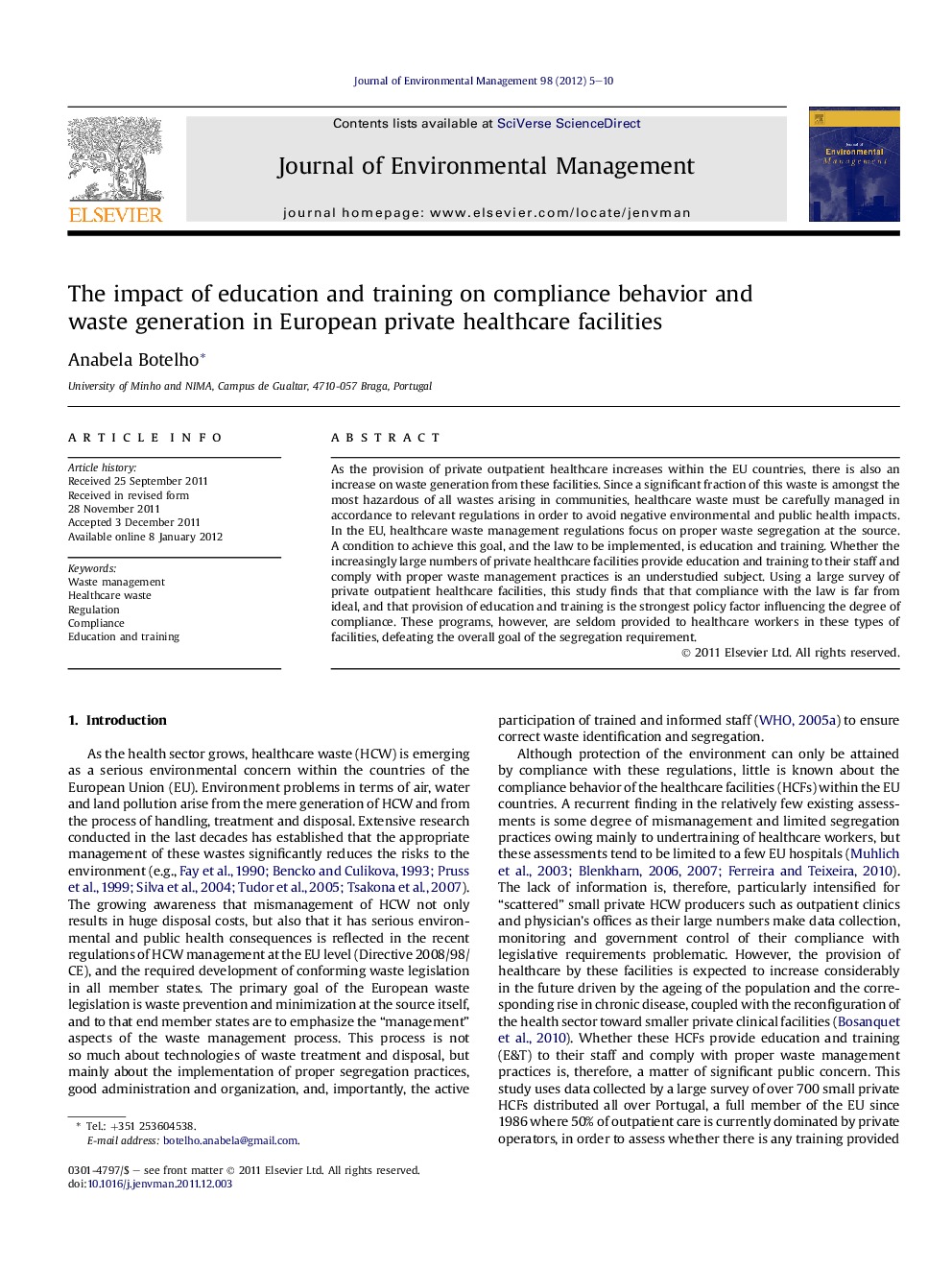| کد مقاله | کد نشریه | سال انتشار | مقاله انگلیسی | نسخه تمام متن |
|---|---|---|---|---|
| 1056932 | 1485314 | 2012 | 6 صفحه PDF | دانلود رایگان |

As the provision of private outpatient healthcare increases within the EU countries, there is also an increase on waste generation from these facilities. Since a significant fraction of this waste is amongst the most hazardous of all wastes arising in communities, healthcare waste must be carefully managed in accordance to relevant regulations in order to avoid negative environmental and public health impacts. In the EU, healthcare waste management regulations focus on proper waste segregation at the source. A condition to achieve this goal, and the law to be implemented, is education and training. Whether the increasingly large numbers of private healthcare facilities provide education and training to their staff and comply with proper waste management practices is an understudied subject. Using a large survey of private outpatient healthcare facilities, this study finds that that compliance with the law is far from ideal, and that provision of education and training is the strongest policy factor influencing the degree of compliance. These programs, however, are seldom provided to healthcare workers in these types of facilities, defeating the overall goal of the segregation requirement.
► A significant fraction of medical waste is amongst the most hazardous of all wastes.
► Mismanagement of this waste has a significant impact on the environment.
► Whether private medical providers in the EU comply with the law is understudied.
► Results from large survey find noncompliance with the relevant regulations.
► Education is the strongest factor affecting compliance and waste reduction.
Journal: Journal of Environmental Management - Volume 98, 15 May 2012, Pages 5–10